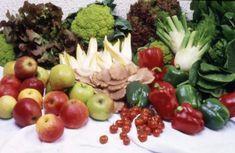
Retailers should “avoid claiming direct environmental benefits from eating in-season produce since these could potentially be misleading”, a report from the Food Ethics Council has found.
The document, a discussion paper prepared for The Co-operative Group last month, but which has only just come to light, has been welcomed by the Fresh Produce Consortium.
Nigel Jenney, FPC ceo Nigel Jenney said: “Encouraging consumers to ‘eat with the seasons’ and enjoy fresh fruit and vegetables is well-intentioned, but we need to dispel the myth that just by eating locally produced seasonal fresh produce consumers can reduce significantly their carbon footprint.” The paper prepared by the FEC, What Should Supermarkets Do About Seasonal Food? explored whether some of the claims made by retailers, campaigners and even government departments about the environmental benefits of seasonal fresh produce stand up to closer scrutiny.
It suggests that the total scope for reductions in greenhouse-gas emissions from changing how we eat fruit and vegetables is less than for other parts of our diet. Fresh fruit and vegetables account for 2.5 per cent of the UK’s overall emissions compared with eight per cent for meat and dairy, suggesting that more substantial GHG reductions might be available elsewhere within people’s diet.
The FPC has long held the view that people should be encouraged to increase their fresh produce consumption almost regardless of source. Jenney said: “We should be encouraging people to enjoy the delights of fresh produce in their prime, but we should not look to restrict consumers’ choice and deprive the nation of some of its favourite fruit and vegetables at certain times of the year by implying that produce grown indoors, imported or stored may not be as enjoyable or as responsible towards the environment.”
Without a clear definition of seasonality the Food Ethics Council’s report concludes that it is difficult to ensure that retailers are supporting environmental goals, and states that retailers should “avoid claiming direct environmental benefits from eating in-season produce since these could potentially be misleading”.
According to Defra’s own research some imported fruit and vegetables are grown in less greenhouse gas intensive ways than the same products in the UK, with savings from greater efficiency outweighing the negative impacts of additional transport.
Whilst eating seasonally appears to be popular with consumers Defra has admitted that the direct environmental benefit is comparatively modest and has even considered removing it from its list of 12 changes consumers can make towards a sustainable lifestyle.
There are concerns that well-intentioned moves to encourage people to eat fresh produce in season may even lead to a reduction in consumption as consumers’ choice becomes restricted, impacting on economic growth here in the UK as well as in developing countries which are reliant on agriculture.



